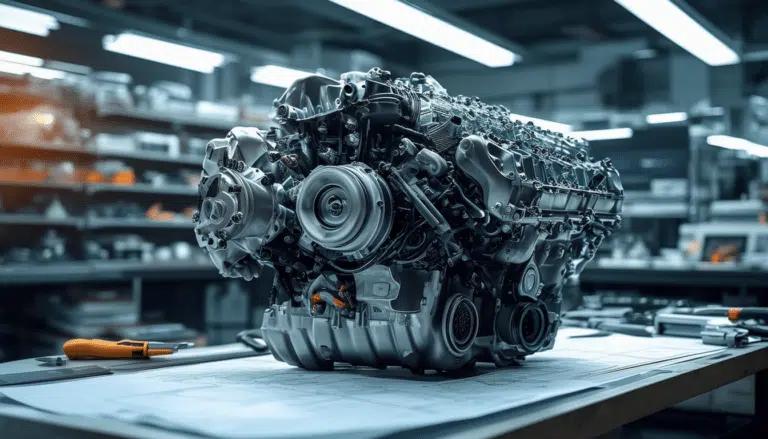Implementing clean energy in the transport sector
The implementation of clean energies in the transport sector presents itself as an essential path towards environmental sustainability. The dependence on fossil fuels has significantly contributed to pollution and climate change, leading to the need to develop more ecological alternatives. The transition towards sustainable transport solutions, such as electric vehicles, the use of biofuels, and the electrification of fleets not only reduces greenhouse gas emissions but also decreases fuel expenses, generating economic and social benefits. The adoption of clean technologies in this sector not only boosts the competitiveness of companies but also contributes to the improvement of the quality of life in our cities.
The implementation of clean energies in the transport sector is a crucial step towards creating a more sustainable future. As concerns about climate change and the need to reduce greenhouse gas emissions grow, the transport sector faces the urgent task of adopting more responsible energy solutions. This article will explore the different forms of clean energies, the challenges and opportunities in the logistics industry and public transport, as well as the technological innovations that are transforming this sector.
The role of renewable energies in the transport sector
Transport is one of the main sources of pollutant gas emissions globally, especially in Latin America and the Caribbean. Dependence on fossil fuels has led to growing concerns about the environmental impact of the sector. Renewable energies, such as solar energy and wind energy, offer viable alternatives to reduce these emissions. Electromobility and the use of biofuels are emerging trends that point to a change in the way we move people and goods.
Challenges in the integration of clean energies
Despite the benefits of clean energies, the adoption in the transport sector faces several challenges. One of the main obstacles is the insufficient infrastructure for charging electric vehicles. In many regions, the lack of charging stations limits the viability of electric cars. Additionally, the high initial costs of transition and the resistance of companies to change their business models have hindered progress towards cleaner transport.
Technological innovations in sustainable transport
Technology plays a transformative role in the transition towards more sustainable transport. From the research and development of new electric vehicles to the implementation of alternative energy sources, innovation lies at the heart of this transformation. For example, some manufacturers are exploring the possibility of using hydrogen and biofuels, boosting electrification and sustainability in transport.
Success examples in the energy transition
There are notable examples of cities that have advanced in the implementation of clean energies in their transport systems. Norway, for instance, has managed to make more than 60% of its vehicles electric. These initiatives not only help reduce local emissions but also serve as models that other cities can follow to improve their contribution to sustainable mobility.
Sustainable logistics and its impact on the sector
Logistics is a crucial component in the advancement towards more sustainable transport. The implementation of sustainable logistics practices can be a differentiating factor in today’s market, where companies seek to reduce costs while meeting environmental expectations. Companies that lead in the adoption of clean energies benefit from a positive reputation and increased customer satisfaction.
The impact of sustainable infrastructure
Investment in sustainable infrastructure is essential to facilitate the transition to cleaner energies. As new technologies develop, the infrastructure must evolve to support these advancements. Projects like the investment in sustainable infrastructure focus on modernizing transport networks, reducing environmental impact and optimizing the use of energy resources.
Towards a future of ecological transport
The transition from a fossil fuel-centered transport system to one based on clean energies is not only necessary but inevitable. With increasing interest in sustainable solutions and pressure from consumers and regulators, the transport sector finds itself at a turning point. The creation of effective policies can facilitate this transition and promote the use of cleaner alternatives.
Innovations such as transformations of diesel engines into hybrids and electric vehicles are part of the change taking place in the industry. Furthermore, energy efficiency plays a fundamental role in reducing fuel expenses, and initiatives like strategies for saving on fuel use are part of the solution.
Finally, the development of innovative technologies, such as new water-based engines, shows a promising path towards a more sustainable future in transport. The combination of these strategies and technological developments opens the possibility of transforming transport into a driver of sustainability for future generations.
The implementation of clean energies in the transport sector presents itself as a vital solution for facing environmental challenges and reducing greenhouse gas emissions. This sector, one of the main culprits of pollution, needs a transformation that prioritizes the use of renewable sources such as solar energy, wind energy, and biofuels.
Adopting these energies will not only contribute to decreasing environmental impact, but will also offer economic benefits. Companies that incorporate sustainable logistics practices position themselves favorably in a competitive market, stand out for their commitment to sustainability and environmental responsibility. This can translate into competitive advantages, through savings in operational costs and improvement in their brand image.
Despite the challenges in adopting clean energies, such as the initial investment in technologies and the need for adequate infrastructure, opportunities are vast. The research and development of advanced technologies is crucial to facilitate this transition. Investment in electromobility and the development of hydrogen-powered vehicles are examples of innovations that are being developed and indicate a promising future.
Moreover, government policies play a crucial role in promoting clean energies. The implementation of subsidies and regulations that favor the use of sustainable technologies can accelerate the transition towards more responsible transport. Active participation from the community and the private sector is also essential, creating an ecosystem that fosters the use of clean energy solutions, thus ensuring sustainable development in the long term.




